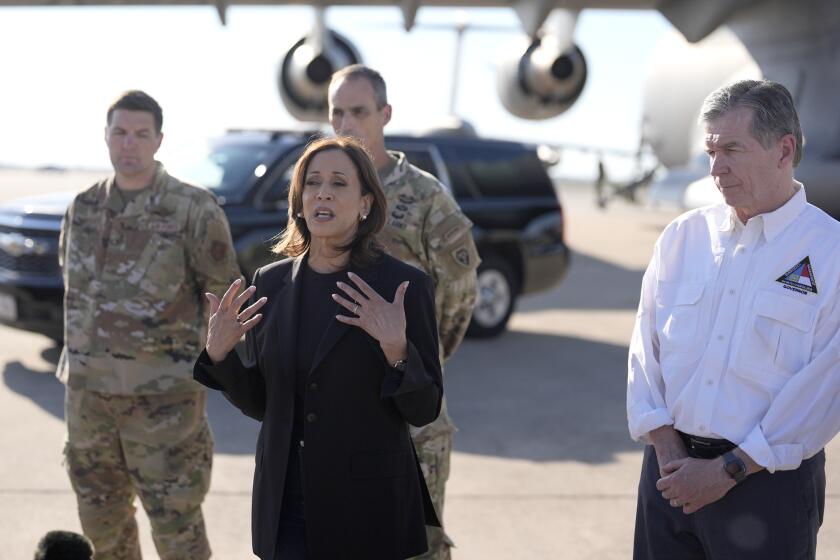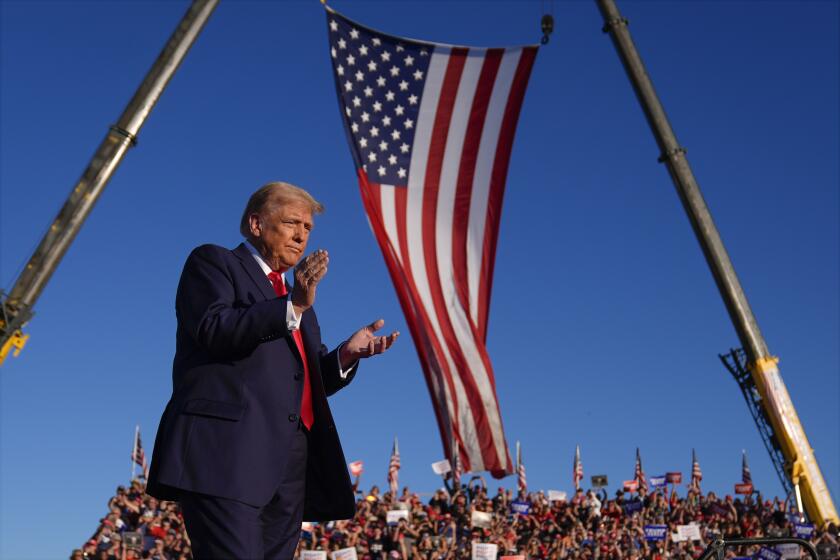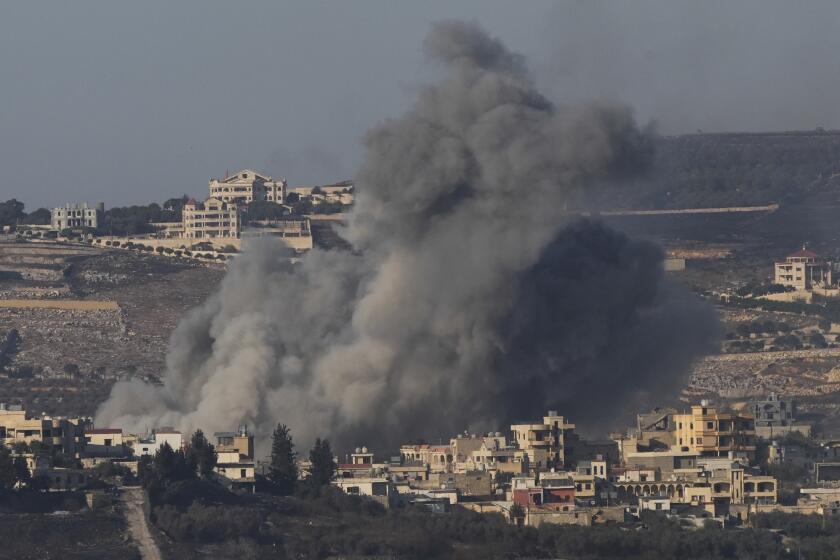Defying History, They Fought Back : Soviet people show their passion for greater liberty
The world may have to wait for the courtroom confessions or eventual memoirs of the key plotters in this week’s attempted coup in the Soviet Union to get clearer insights into what caused their conspiracy to fail--and fail so ignominiously. Whatever the explanations, the dramatic and uplifting fact of their defeat is now there for all to see. And the consequences are likely to be far-reaching. High among them almost certainly will be a strengthening of those nascent democratic forces that the coup sought to subvert.
It’s tempting to see in the quick and messy collapse of the putsch only further evidence that nothing can be counted on to work right in the Soviet Union, even sedition at the highest level. But that doesn’t resolve the mystery of why some of the country’s most powerful men, led by the commanders of the armed forces, the Interior Ministry and the secret police, decided to risk so much--including, literally, their necks--and then proved so inept in performance.
Several things went terribly wrong for the junta--but wonderfully right for the supporters of democracy.
First, they found a rock-steady and audacious champion in Boris Yeltsin. The Russian president was quick off the mark to proclaim his loyalty to his old rival, the briefly deposed Soviet President Mikhail S. Gorbachev, quick to condemn the junta, quick to call on the public to refuse to obey its illicit orders. This week saw Yeltsin grow further in stature. He must now, beyond any question, be recognized as his country’s pre-eminent political figure.
Second, the Western allies promptly made clear their wish to see Gorbachev restored to office, and refused to recognize or do business with the plotters. Give President Bush in particular high marks for saying and doing the right things in a firm, prudent and timely way.
Finally, credit the tens of thousands who took to the streets of Moscow, Leningrad and other cities, for forcefully demonstrating their commitment to representative government and the rule of law. Credit them with showing the plotters that the traditional political apathy they seem to have counted on to ease their seizure of power may now have become a thing of the past. Credit fearless people for showing they were ready to die to defend the liberties they have only so recently won.
As for the junta’s political pratfall, one possible explanation--tentative as all must be for now--is that the plotters’ pretense to be acting constitutionally served as a restraint on their behavior. The domestic media, though censored, were never fully silenced; voices of dissent continued to be heard. Perhaps most significant, no early action was taken to seize the Russian Parliament building in Moscow, which quickly became the focal point of opposition. Under Stalin or Khrushchev or Brezhnev, the full force of state power would have been used to crush resistance, in the belief that while the world might complain it would do nothing to interfere. This time, willingly or not, consciously or not, the junta seems to have realized that world opinion cannot be so readily ignored or insulted.
It also seems to have realized, either before it acted or soon after, that it could not count on the blind obedience of all units of the army. The junta erred by disregarding many things; among them were the election results in the Russian Federation. Given a free choice, most members of the armed forces supported Yeltsin when he ran for president.
Even as the world celebrates with them, the Soviet people continue to face enormous, wrenching challenges. The reactionaries may still not have had their last hurrah. But this week promises to endure as a shining monument to the cause of freedom, thanks to the bold leaders and courageous ordinary people who united to defy those whose vision of the future encompasses little more than a return to the nightmares of the past.
More to Read
Sign up for Essential California
The most important California stories and recommendations in your inbox every morning.
You may occasionally receive promotional content from the Los Angeles Times.










